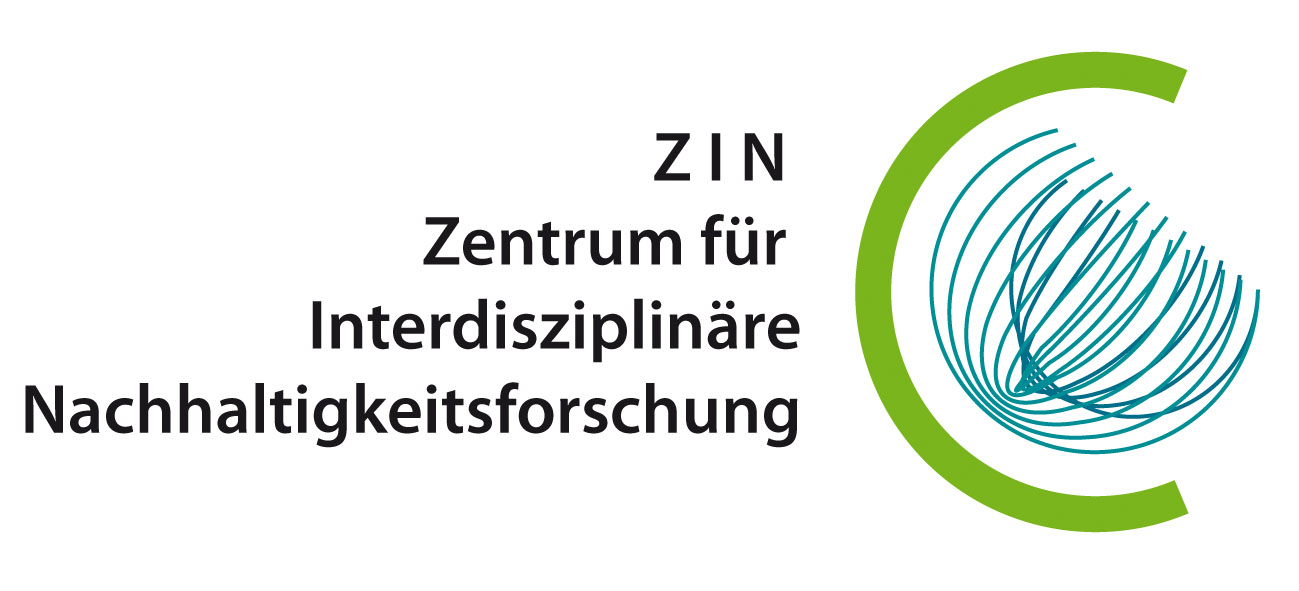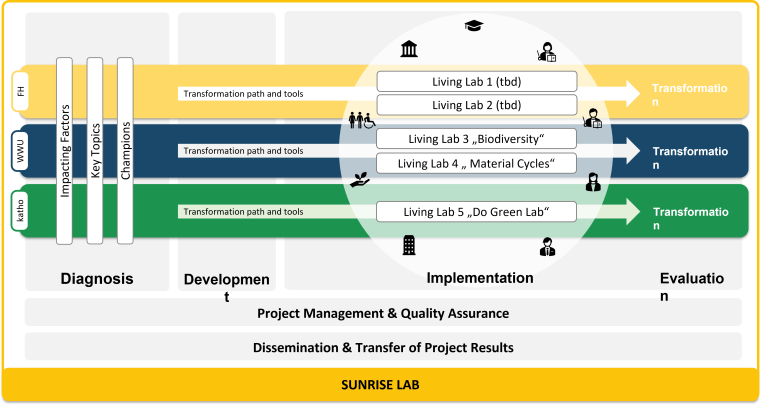How can universities be drivers of the sustainability transformation? This question is being addressed by the BMBF-funded joint project "Sustainable University Landscape Münster – Living labs as drivers of transformation towards sustainable universities". In this joint project, Münster's three major universities (University of Münster, Münster University of Applied Sciences and katho Münster) have joined forces to find out how the universities can make themselves as well as the city of Münster and its surrounding area more sustainable and thus contribute to the sustainability transformation of the city and society as a whole.
The central instrument for initiating these transformations, for testing project ideas and for strengthening the exchange between the various relevant stakeholders will be at least five living labs, which are located at the respective universities. In the context of transformation research in the social sciences, living labs are understood as means to implement project ideas together with stakeholders and/or citizens under controlled and controllable conditions and reflecting on these processes during the process.
The aim of the living labs in the SUNRISE LAB project is to jointly produce practically applicable knowledge with the participation of different actors, such as scientists, non-scientific employees of the universities, students, or society. This knowledge can then be applied more comprehensively to institutions such as the university or broader social contexts. One overarching living lab, the SUNRISE Lab which is located at Münster University of Applied Sciences, addresses the question of how living labs in general can succeed in universities as drivers of transformation. The other living labs, which are located at all three universities of the consortium, address specific problems of the transformation to a sustainable university and thus test how individual areas of the university and society can be influenced by new practices and new knowledge. The scientifically supported reflection processes in turn feed into the knowledge process of the overarching living lab.
The scientific management of the project at the University of Münster is in the hands of Prof. Dr. Doris Fuchs (Centre for Interdisciplinary Sustainability Research and Institute for Political Science) and Prof. Dr. Iris Dzudzek (StadtLabor Münster, Department of Geosciences). Tobias Breuckmann (StadtLabor, Department of Geosciences) and Dr. Rebecca Froese (Centre for Interdisciplinary Sustainability Research) are responsible for the operational implementation of the sub-projects at the University of Münster.


